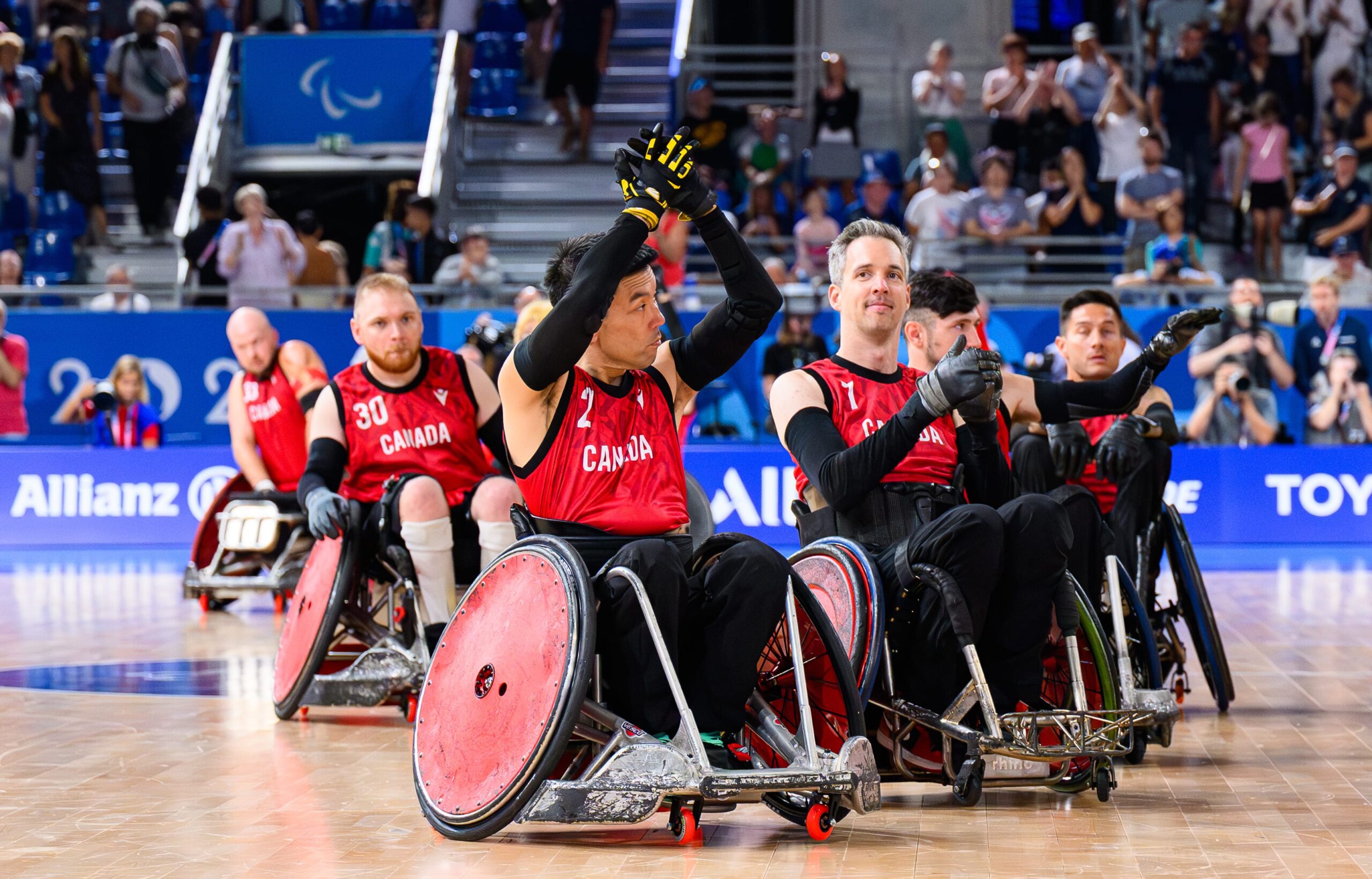
Wheelchair rugby
Summer Sports
Originally known as murderball, wheelchair rugby is a rough and rumbling sport for men and women, most of whom have quadriplegia. It is played on a basketball court and the objective is to fully cross the opponent’s goal line for a point. It is non-stop action with passing, ball carrying and of course wheelchairs crashing into each other.
This unique sport combines elements of basketball, handball and ice hockey. Wheelchair rugby was invented in 1976 in Winnipeg. Today, it is played in 40 countries and is under development in several more.
The basic rules of wheelchair rugby:
The object of the game is to carry the ball across the opposing team’s goal line.
Two wheels must cross the line for the goal to count, and the player must have firm control of the ball when he or she crosses the line.
The game is played on a hardwood basketball court that is marked by boundary lines, a center line, a center circle and two key areas. A standard volleyball is used.
The game consists of four eight-minute quarters. There is a two-minute break between quarters and a five-minute break at halftime.
Teams have 40 seconds to score on each possession.
After a goal or stoppage of play, the player has 10 seconds to inbound the ball.
A player whose team has control of the ball cannot remain in the opposing team’s key for more than 10 seconds.
A player must dribble the ball once every 10 seconds.
The defending team must have no more than three players in the key.
Wheelchair rugby is a full-contact game and chair contact is encouraged. To ensure player safety, however, players cannot strike another player’s wheelchair anywhere behind the axle of the rear wheel if it causes the chair to rotate horizontally or vertically. Physical body contact is also not permitted.
After inbounding the ball, a team has 12 seconds to bring the ball over the half-court line.
Each team has four time-outs of 30 seconds each, which may be used during regulation play and may be called by players on the floor, and two one-minute bench timeouts.
If the score is tied, an overtime period of three minutes will be played. Additional overtime periods will be played until one team wins.
Wheelchair Rugby became a full medal sport at the 2000 Paralympic Games. Canada won silver in 2004, bronze in 2008 and silver again in 2012.
International Wheelchair Rugby Federation is the world governing body. Wheelchair Rugby Canada is the National Sport Federation.
Wheelchair Rugby players are given points based upon their amount of available movement. Players with the least movement score lower than those with more.
A team is made up of four players that can be in any combination as long as their points total does not exceed a total of 8.
Teams are allowed half a point extra for each female player on court.
To be eligible, athletes with spinal cord injuries must have impairment in at least three limbs. Athletes without spinal cord injuries (such as cerebral palsy or amputation) must have impairment in all four limbs.
Typically, an athlete is assigned a class following the completion of the bench test and the functional skills test prior to game play (observation of ball handling and wheelchair skills). The athlete’s execution of ball and wheelchair handling skills are observed on court during actual play to make a final determination of the athlete’s class.
Players are classed into one of seven classes (0.5, 1.0, 1.5, 2.0, 2.5, 3.0, or 3.5) depending on their functional ability. The higher classes are assigned to players with higher functional levels, while lower classifications are assigned to players with less functional ability.
Wheelchair rugby athletes are generally disabled as a result of a spinal cord injury, polio, cerebral palsy, or a progressive disease such as muscular dystrophy or multiple sclerosis.
The combined classification value of an on-court team cannot exceed eight points. This ensures teams play a mix of athletes with a range in functional levels. Female players can allow teams to play with an extra half–point per player, and are thus increasingly valuable players to recruit in to the sport.
"*" indicates required fields